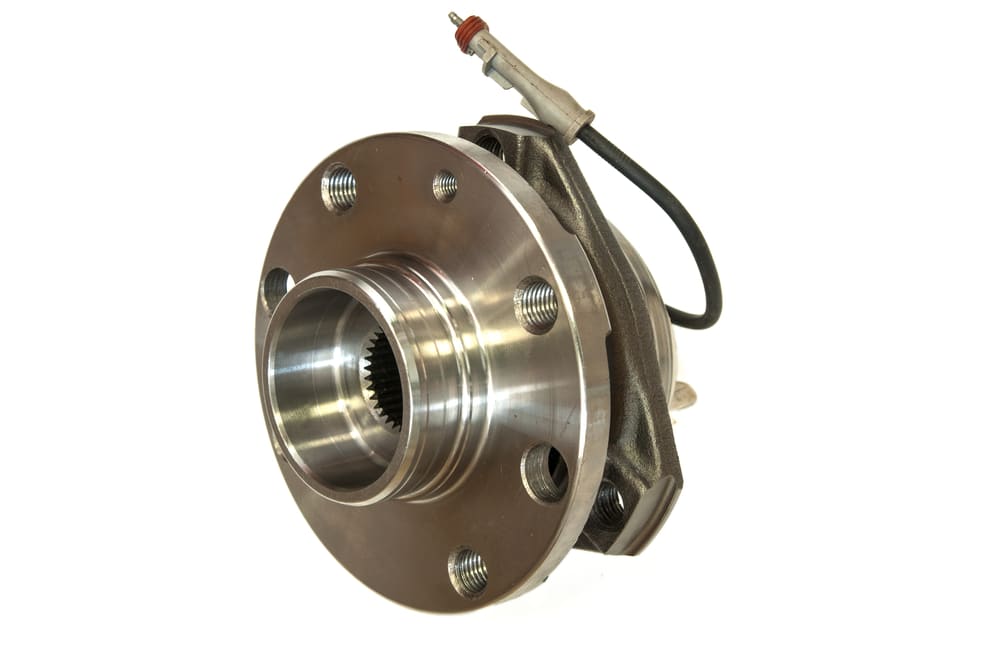

Drivers across the US would be prone to multiple speeding tickets without the important assistance of the wheel speed sensor. This component, which is also referred to as an ABS sensor, is attached to the hub of a drive tire and is responsible for monitoring multiple vehicle functions such as traction control, anti-lock braking systems, and obviously, the vehicle’s speed. Due to this fact, when the wheel speed sensor is going bad or failing, it will commonly impact the operation of these other vehicle functions and display certain warning signs that any driver can instantly notice as they drive.
The wheel speed sensor is different than the speed sensor attached inside the vehicle's transmission. Its job is to record the actual wheel speed and report this data to the vehicle ECU which controls all electronic functions on the car, truck, or SUV. Like any electronic device, the best way to determine how well the wheel speed sensor is working is to measure voltage output with a voltmeter. Since most car owners don't have access to this tool, they have to rely on the warning signs that might indicate that this component is starting to wear out or has broken and needs to be replaced as soon as possible.
Noted below are a few of the warning signs of a bad or failing wheel speed sensor for your review.
1. ABS Light is illuminated on the dashboard
Since the wheel speed sensor also monitors the anti-lock braking system on your car, it's common for the ABS Light to illuminate when the sensor is worn out, disconnected, or has been struck by debris, which means you'll have to replace the wheel speed sensor. There are other problems that will also cause this light to illuminate including a faulty ABS pump, worn out brake pads, low brake fluid levels, issues with brake pressure, or air trapped in the brake lines.
Because of the seriousness of brake component failure or damage to your brakes, it's very important to contact an experienced mechanic as quickly as possible if you see the ABS Light on your dashboard lit as you drive.
2. ABS does not work properly
The anti-lock braking system is designed to apply smooth application of brake fluid to engage the brake calipers and pads to slow your car without locking up the tires. The wheel speed sensor is responsible for relaying the wheel speed to the ECU so that it can tell the ABS system how much pressure to safely apply. When the wheel speed sensor is broken or not working as it should, one of the first things that are affected is the ABS system.
If you press your brakes and you notice that the front tires lock up, you should immediately contact a local ASE certified mechanic to inspect this problem. This problem can be a safety concern and should not be put off. If needed, it's recommended to stop driving the vehicle until a mechanic diagnoses the problem and fixes the ABS system. In the best case scenario, it will be a faulty wheel speed sensor that simply needs to be replaced.
3. Traction Control Light is active
The Traction Control Light on modern cars typically is illuminated when the driver of the car turns the system off. If you didn't complete this step or if the traction control is active, the most common reason that the light is illuminated is due to a faulty wheel speed sensor. The wheel speed sensor also monitors wheel speed and sends the data to the traction control system; which is why this warning sign is commonly due to a worn out or broken wheel speed sensor.
As with the ABS system, traction control is a safety device for cars, trucks, and SUVs. It's designed to ensure the tires don't break loose while the throttle is applied. If you notice that the traction control light is on, and you didn't turn it off, contact a local ASE certified mechanic immediately.
You can clearly see that the wheel speed sensor does much more than simply count how many revolutions your tire makes each second. It sends valuable data to the car’s onboard computer every millisecond, which is why it's very critical to the safe operation of your vehicle. If you notice any of the above warning signs, don't delay – contact a local ASE certified mechanic partnered with YourMechanic as soon as possible.



